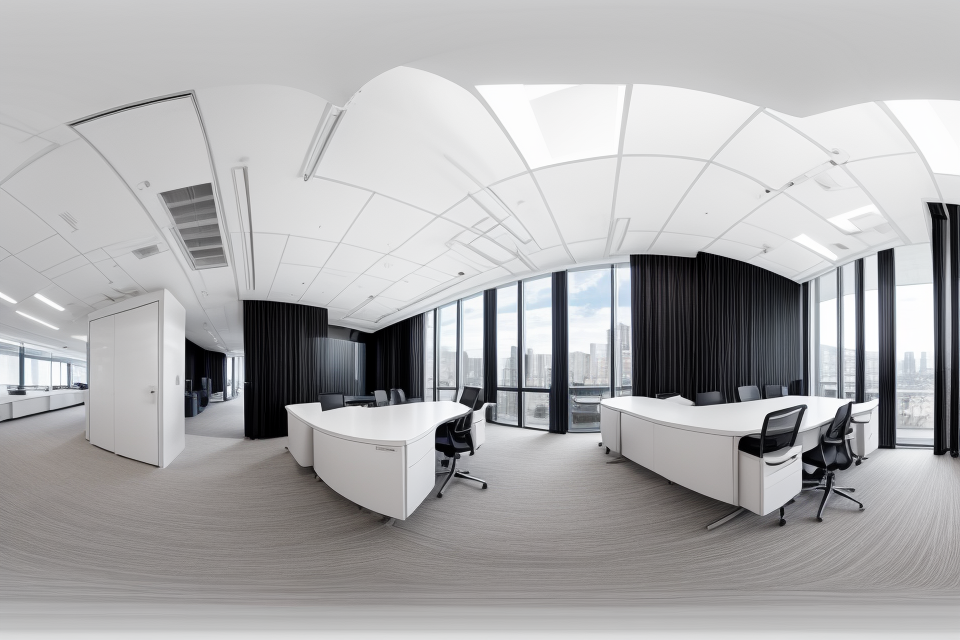
In today’s competitive world, creating a professional image is essential for career success. It’s not just about what you know but also about how you present yourself to the world. Your professional image encompasses everything from your attire to your communication skills, work ethic, and personal brand. It plays a crucial role in shaping how others perceive you and can significantly impact your career prospects. In this article, we will explore why a professional image is essential for your career success and provide tips on how to create and maintain a positive professional image. So, let’s dive in!
The Importance of First Impressions
Making a Positive First Impression
Personal Appearance
Your personal appearance is often the first thing that people notice about you, and it can make a significant impact on how they perceive you. Therefore, it is crucial to pay attention to your attire and grooming. This includes wearing appropriate clothing for the occasion, ensuring that your clothes are clean and pressed, and maintaining a neat and tidy appearance.
Grooming and Hygiene
Grooming and hygiene are also essential aspects of making a positive first impression. This includes maintaining good personal hygiene, such as brushing your teeth, washing your hair, and taking care of your skin. It also involves taking care of your appearance, such as keeping your nails trimmed, and ensuring that your hair is well-groomed.
Non-Verbal Communication
Non-verbal communication, such as body language and facial expressions, can also play a significant role in making a positive first impression. It is essential to be aware of your body language and ensure that it is open and confident. This includes making eye contact, standing up straight, and using appropriate gestures. Additionally, a smile can go a long way in making a positive first impression, as it can convey warmth and friendliness.
The Impact of First Impressions on Career Success
In today’s competitive job market, it’s crucial to make a lasting impression on potential employers, clients, and colleagues. Your professional image plays a significant role in shaping your career success, as it influences how others perceive you and your work. Here are some ways in which first impressions can impact your career success:
Networking and Business Relationships
Networking is essential for building professional relationships and expanding your career opportunities. Whether it’s attending industry events, participating in online forums, or connecting with colleagues on social media, your professional image can make or break your networking efforts. A well-crafted online presence, such as a LinkedIn profile or a personal website, can showcase your skills and expertise, making it easier for others to approach you and start a conversation. On the other hand, a poorly maintained image can deter potential connections from reaching out to you.
Job Interviews and Promotions
First impressions are critical during job interviews, as they can significantly impact the hiring decision. A well-dressed, confident, and professional candidate is more likely to leave a positive impression on the interviewer, increasing their chances of being offered the job. Additionally, a strong professional image can also help you stand out from other candidates and increase your chances of getting promoted within your current organization.
Building Trust and Credibility
Trust and credibility are essential for building successful professional relationships. A professional image can help establish your credibility as an expert in your field, making it easier for others to trust your advice and recommendations. Additionally, a consistent and professional image can help you build a positive reputation, which can lead to more opportunities and career growth.
Overall, your professional image plays a vital role in your career success. It’s essential to maintain a consistent and positive image across all aspects of your professional life, from your online presence to your in-person interactions. By doing so, you can increase your chances of building successful relationships, securing job opportunities, and achieving your career goals.
Creating a Strong Professional Image
Understanding Your Brand
When it comes to creating a strong professional image, understanding your brand is crucial. Your brand is the way you present yourself to the world, and it includes everything from your personal style to your online presence. To understand your brand, you need to start by identifying your unique selling proposition (USP).
- Identifying Your Unique Selling Proposition (USP)
Your USP is what sets you apart from others in your field. It could be your expertise, your personality, or your unique skills. Whatever it is, your USP should be the foundation of your personal brand strategy. Once you have identified your USP, you can start developing your personal brand strategy.
- Developing Your Personal Brand Strategy
Your personal brand strategy should include a clear and consistent message that reflects your USP. This message should be reflected in everything from your resume and LinkedIn profile to your social media posts and email signature. To develop your personal brand strategy, consider the following:
+ Define your target audience: Who do you want to reach with your personal brand? What are their needs and interests?
+ Identify your core values: What principles and beliefs are most important to you? How can you incorporate these into your personal brand?
+ Determine your tone of voice: What tone do you want to convey in your personal brand? Formal or informal? Humorous or serious?
+ Choose your visuals: What images or graphics will represent your personal brand? Consistency is key, so choose a color scheme and font that reflects your brand.
By understanding your brand and developing a strong personal brand strategy, you can set yourself apart from others in your field and increase your chances of career success.
Crafting Your Online Presence
In today’s digital age, having a strong online presence is crucial for building a professional image. Here are some ways to craft your online presence:
- Professional Social Media Profiles: Social media is a great way to connect with people in your industry and showcase your work. However, it’s important to keep your profiles professional and avoid sharing inappropriate content. Make sure your profile pictures and cover photos are professional and consistent with your brand.
- Personal Websites and Blogs: Having a personal website or blog can help you establish yourself as an expert in your field. It’s a great way to showcase your work, share your thoughts and opinions, and connect with your audience. Make sure your website is professional and easy to navigate, and keep your content relevant and engaging.
- Networking Platforms: Networking platforms like LinkedIn are a great way to connect with other professionals in your industry and build your professional network. Make sure your profile is complete and up-to-date, and engage with other users by sharing content and commenting on their posts.
Overall, having a strong online presence can help you build your professional image and increase your chances of success in your career.
Establishing Your Offline Presence
Attending Industry Events and Conferences
Attending industry events and conferences is an excellent way to establish your offline presence and network with professionals in your field. These events provide opportunities to learn about the latest trends and developments in your industry, as well as to connect with potential employers, clients, and colleagues. To make the most of these events, it’s important to prepare by researching the conference schedule and speakers, as well as practicing your elevator pitch to ensure you can effectively communicate your professional goals and interests.
Building Relationships with Colleagues and Mentors
Building relationships with colleagues and mentors is essential for establishing your offline presence and advancing your career. Colleagues can provide valuable feedback and support, as well as introduce you to new opportunities and potential clients. Mentors, on the other hand, can offer guidance and advice based on their own experiences, helping you navigate the challenges and opportunities of your career. To build strong relationships with colleagues and mentors, it’s important to be approachable, reliable, and willing to collaborate and learn from others.
Contributing to Your Community
Contributing to your community is an effective way to establish your offline presence and demonstrate your commitment to your profession. This can include volunteering your time and expertise to local organizations, participating in community events, or speaking at industry conferences and workshops. By giving back to your community, you can build your reputation as a knowledgeable and dedicated professional, as well as expand your network of contacts and potential collaborators. To make the most of these opportunities, it’s important to be proactive and seek out opportunities to contribute, as well as to be open to new experiences and challenges.
Maintaining Your Professional Image
Continuously Improving Your Skills and Knowledge
Continuously improving your skills and knowledge is crucial for maintaining a professional image. This involves staying up-to-date with industry trends, seeking feedback and critique, and pursuing further education and certifications.
Staying Up-to-Date with Industry Trends
One way to continuously improve your skills and knowledge is by staying up-to-date with industry trends. This can involve reading industry publications, attending conferences and networking events, and following industry leaders on social media. By staying informed about the latest developments in your field, you can demonstrate your commitment to staying current and relevant.
Seeking Feedback and Critique
Another important aspect of continuously improving your skills and knowledge is seeking feedback and critique. This can involve asking colleagues or mentors for feedback on your work, participating in peer review processes, or seeking out professional development opportunities. By actively seeking out feedback and critique, you can identify areas for improvement and take steps to address them.
Pursuing Further Education and Certifications
Finally, pursuing further education and certifications can be an effective way to continuously improve your skills and knowledge. This can involve taking courses or workshops, earning degrees or certifications, or participating in professional development programs. By investing in your own education and training, you can demonstrate your commitment to staying current and competitive in your field.
Overall, continuously improving your skills and knowledge is essential for maintaining a professional image and advancing your career. By staying up-to-date with industry trends, seeking feedback and critique, and pursuing further education and certifications, you can demonstrate your commitment to staying current and relevant in your field.
Navigating Reputation Management
Managing your reputation is an essential aspect of maintaining a professional image. Here are some tips on how to navigate reputation management:
Responding to Negative Feedback and Criticism
Negative feedback and criticism can be challenging to handle, but it’s crucial to respond appropriately to protect your reputation. Here are some tips:
- Respond promptly: Respond to negative feedback as soon as possible to show that you are attentive to your customers’ concerns.
- Be empathetic: Show that you understand the customer’s frustration and apologize for any inconvenience caused.
- Provide a solution: Offer a solution to the problem and follow up to ensure that the issue has been resolved.
Maintaining Boundaries and Professionalism Online
In today’s digital age, it’s essential to maintain boundaries and professionalism online. Here are some tips:
- Use a professional profile picture and header image on social media platforms.
- Keep your social media profiles private and avoid sharing personal information.
- Be mindful of what you post on social media, and avoid controversial topics.
Protecting Your Reputation from Reputational Threats
Reputational threats can come from anywhere, and it’s essential to protect your reputation from such threats. Here are some tips:
- Monitor your online presence: Regularly check your social media profiles and search results to ensure that there are no negative comments or articles about you.
- Respond promptly to any negative comments or articles: Address any concerns or misconceptions in a professional manner.
- Build a positive online presence: Share positive news about your business or personal achievements to outweigh any negative content.
By following these tips, you can effectively navigate reputation management and maintain a positive professional image.
The Long-Term Benefits of a Strong Professional Image
Career Advancement and Success
Having a strong professional image is crucial for career advancement and success. It not only helps you stand out in a competitive job market but also increases your visibility and opportunities for growth within your organization. Here are some specific ways in which a strong professional image can contribute to your career advancement and success:
Increased Visibility and Opportunities
When you have a professional image, you are more likely to be noticed by those in positions of power and influence. This can lead to increased visibility and opportunities for advancement, such as being considered for high-profile projects or being given the opportunity to represent your organization at industry events.
Higher Job Satisfaction and Salary
A strong professional image can also lead to higher job satisfaction and salary. When you present yourself as a competent, confident, and capable professional, you are more likely to be valued by your employer and recognized for your contributions. This can lead to opportunities for advancement and increased compensation.
Better Work-Life Balance
Finally, having a professional image can help you achieve a better work-life balance. When you are seen as a reliable, dedicated, and competent professional, you are more likely to be trusted with greater responsibilities and given more flexibility in your work schedule. This can help you achieve a better balance between your work and personal life, which is essential for long-term career success.
Personal Growth and Fulfillment
Having a strong professional image plays a crucial role in one’s personal growth and fulfillment. It allows individuals to develop self-confidence and self-esteem, foster stronger relationships with colleagues and mentors, and ultimately achieve their personal and professional goals.
- Developing Self-Confidence and Self-Esteem
A professional image can help individuals build self-confidence and self-esteem. When one presents themselves in a polished and put-together manner, they feel more confident in their abilities and more likely to take on new challenges. This, in turn, can lead to increased self-esteem and a greater sense of accomplishment.
- Fostering Stronger Relationships with Colleagues and Mentors
Having a strong professional image can also help individuals build stronger relationships with their colleagues and mentors. When one presents themselves in a professional manner, they are more likely to be taken seriously and taken more seriously by their peers. This can lead to more opportunities for collaboration and mentorship, which can be crucial for career advancement.
- Achieving Personal and Professional Goals
Finally, having a strong professional image can help individuals achieve their personal and professional goals. When one presents themselves in a polished and put-together manner, they are more likely to be seen as a leader and taken more seriously by their peers. This can lead to more opportunities for advancement and success in their careers. Additionally, when one feels confident in their appearance, they are more likely to take on new challenges and strive for success.
FAQs
1. What is a professional image?
A professional image refers to the way you present yourself to others in a work setting. It includes your appearance, behavior, communication skills, and overall demeanor. A professional image is important because it can influence how others perceive you and your abilities, and can impact your career success.
2. Why is a professional image important for career success?
A professional image is important for career success because it can help you make a positive first impression, establish credibility, and build trust with others. When you present yourself in a professional manner, others are more likely to take you seriously and view you as a competent and reliable individual. This can lead to more opportunities for career advancement and success.
3. What are some key elements of a professional image?
Some key elements of a professional image include your appearance, behavior, communication skills, and overall demeanor. You should aim to dress appropriately for your work environment, maintain good grooming habits, and behave in a professional and respectful manner. You should also work on developing strong communication skills, including active listening, clear and concise speaking, and effective writing.
4. How can I improve my professional image?
There are several ways you can improve your professional image. You can start by dressing appropriately for your work environment, paying attention to your grooming, and practicing good manners and etiquette. You can also work on developing your communication skills, including active listening, clear and concise speaking, and effective writing. Additionally, you can seek feedback from colleagues and mentors to identify areas for improvement and make necessary adjustments.
5. What are some common mistakes people make when it comes to their professional image?
Some common mistakes people make when it comes to their professional image include dressing inappropriately, failing to maintain good grooming habits, and behaving in a unprofessional or disrespectful manner. Other mistakes include poor communication skills, such as not listening actively, speaking unclearly or too much, or using inappropriate language. It’s important to be aware of these mistakes and make a conscious effort to avoid them in order to maintain a strong professional image.


